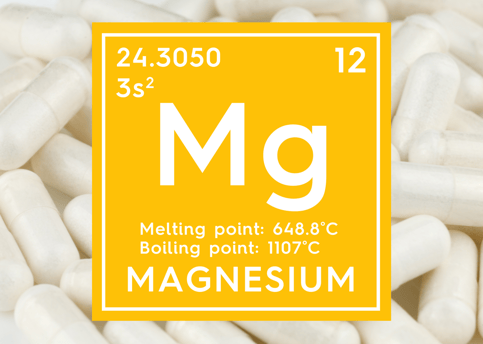Unlocking the Power of Magnesium for Fitness and Recovery
Magnesium supplementation for athletes, including dosage and timing, as well as natural food sources of magnesium and other things to consider about magnesium supplementation.
4/21/20253 min read


Unlocking the Power of Magnesium for Fitness and Recovery
Magnesium might not get the spotlight like protein or electrolytes, but it’s a powerhouse mineral your body relies on—especially if you’re into fitness or sports. From supporting energy production to aiding muscle recovery, magnesium plays a pivotal role in keeping your body moving and performing at its best.
Why Magnesium Matters for Active Bodies
Magnesium is crucial for muscle contraction and relaxation, energy metabolism, and maintaining a steady heartbeat. It supports the transport of calcium and potassium—both essential for muscle function. Without enough of it, your performance and recovery could suffer.
One of the key roles magnesium plays is helping your body efficiently use oxygen, which is essential for endurance during aerobic activities. It also helps regulate glucose, your primary source of energy, and may reduce the risk of post-workout muscle soreness and fatigue.
Do Athletes Need More Magnesium?
The short answer: Yes. Research suggests that athletes may require 10–20% more magnesium than sedentary individuals. That’s because strenuous workouts, especially long or high-intensity sessions, can deplete magnesium stores through sweat and increased metabolic demand.
Low magnesium levels can lead to symptoms like muscle cramps, weakness, and even a higher risk of muscle damage—none of which are welcome when you’re training hard.
Timing Your Magnesium for Optimal Performance
Although there’s no one-size-fits-all answer yet, some studies show benefits to taking magnesium a couple of hours before a workout. This pre-workout boost may help manage lactic acid buildup, delaying fatigue and enhancing your performance, particularly in high-intensity (anaerobic) activities.
Take cycling, for instance—an activity that blends both aerobic endurance and anaerobic power. In one study, cyclists who took a 400 mg magnesium supplement each morning throughout a competition experienced improvements in muscle strength, tone, and potentially faster recovery.
Post-workout, magnesium still has a role to play. Although the research is ongoing, some evidence suggests magnesium can aid in reducing muscle soreness and speeding up recovery when taken consistently. However, more data is needed to determine if post-exercise timing is as effective as pre-workout supplementation.
How Much Magnesium Do You Need?
The recommended daily intake varies depending on factors like sex, pregnancy, and activity levels:
• Women: 310–320 mg
• Pregnant women: 350–360 mg
• Men: 400–420 mg
For exercise support, studies often recommend doses between 300–500 mg. The best way to get magnesium? A mix of supplements and whole foods.
Best Forms and Food Sources of Magnesium
Certain forms of magnesium—like magnesium citrate, lactate, and chloride—are more easily absorbed by the body compared to others like oxide or sulfate. For recovery, magnesium citrate is often preferred.
Whole food sources are a fantastic way to maintain healthy levels. Try incorporating:
• Pumpkin seeds, chia seeds, almonds, cashews
• Leafy greens like spinach
• Legumes like black beans and edamame
• Whole grains, soy milk, and brown rice
• Peanut butter and (yes!) dark chocolate
Special Considerations: Medications, Hormones, and More
Some medications can interfere with magnesium levels. Diuretics and PPIs (used for acid reflux) may cause magnesium loss, while magnesium can reduce the absorption of certain antibiotics like tetracycline.
Additionally, hormone fluctuations can influence magnesium needs. For people who menstruate, magnesium requirements may increase during the follicular phase of the cycle. This could explain the common craving for chocolate—a magnesium-rich food—during that time.
The Bottom Line
Magnesium is more than just a mineral—it’s a key player in energy, performance, and recovery. Whether you’re an endurance athlete or hitting high-intensity workouts, ensuring your magnesium intake meets your body’s elevated needs can make a noticeable difference.
While the ideal supplement dosage and timing are still being studied, staying on top of your magnesium through food and smart supplementation is a proven way to support your athletic goals. As always, speak with your healthcare provider before making major changes to your supplement routine—especially if you’re managing medications or other health conditions.
